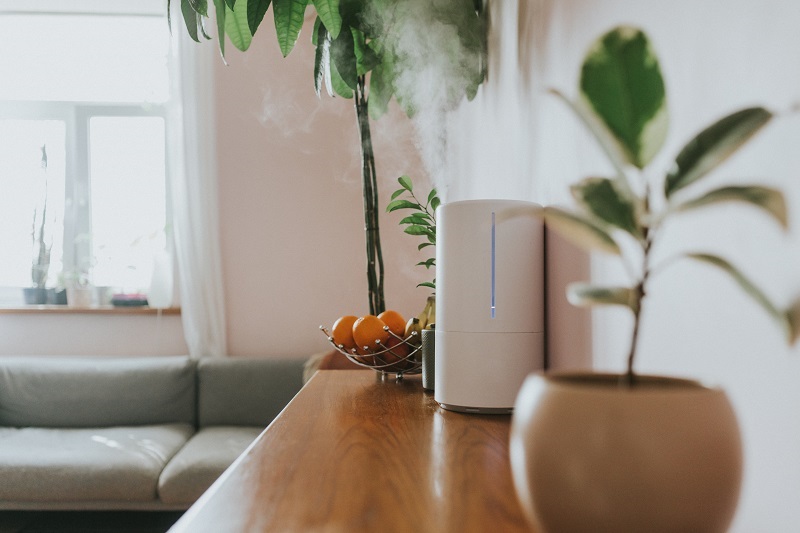What a Pulmonologist Wants You to Know About Humidifiers

January 05, 2024
Our expert, Killol Patel, M.D., director of Interventional Pulmonary at JFK University Medical Center, explains everything you need to know about humidifiers.
When and Why Humidifiers are Helpful
“Humidifiers help when the air is too dry,” Dr. Patel says. “Your skin, mouth and nose will feel dry, and you may begin to sneeze.” Humidifiers can help relieve symptoms of irritating dryness. They can also help relieve cold symptoms or help those who are suffering from chronic conditions, such as asthma or COPD.
Types of Humidifiers
There are two general categories of humidifiers: cold misters and steam vaporizers. They both help to increase the humidity in the air. However, according to Dr. Patel, “Cold misters seem to work better for colds, RSV or COVID—anything with congestion.”
There are a wide variety of humidifiers on the market. Different models will work for varying circumstances. Dr. Patel suggests:
- For nose, mouth and skin dryness, a cheap, basic model of either a cold mister or steam vaporizer is sufficient.
- For chronic pulmonary conditions, a slightly more expensive model with multiple moisture settings is beneficial. “Too much humidity can also cause problems for those with asthma or COPD,” Dr. Patel says.
- For colds, an inexpensive cold mister works.
These various models also have a wide range of price points. Although spending a little extra cash to purchase one with more settings may be beneficial, spending an exorbitant sum is unnecessary. “The more expensive models do not equate to better outcomes from a scientific perspective,” says Dr. Patel.
Importance of Humidifier Maintenance
Humidifiers can provide great health benefits—but only if they are well-maintained. Given their moist environment, they can accumulate mold and bacteria quickly, so Dr. Patel recommends:
- Clean your humidifier with mild dish soap and water twice per week.
- The filter, if your humidifier has one, needs to be cleaned at least once per month. It should be cleaned more often if someone in your household has asthma.
While there are things you can do to help fend off microorganisms, such as using humidifier tablets or UV light, nothing negates the necessity of cleaning. Also, using distilled water in steam humidifiers may help decrease mineral buildup within the reservoir, but it doesn’t necessarily keep them cleaner.
Bacteria and mold are hardy organisms that require active removal. When humidifiers release mist or steam tainted with bacteria or fungi, it could trigger allergy symptoms, asthma symptoms or flu-like symptoms.
When to See a Doctor for Dryness
If you are experiencing dryness or cold-like symptoms but notice that a humidifier isn’t helping, or your symptoms have worsened, you need to see a doctor. Dr. Patel says, “Humidifiers can help control symptoms, but they won’t cure their root cause.”
Next Steps & Resources:
- Meet our source: Killol Patel, M.D.
- Make an appointment online with a pulmonologist near you, or call 800-822-8905.
- Learn more about our pulmonology services.
The material provided through Healthier You is intended to be used as general information only and should not replace the advice of your physician. Always consult your physician for individual care.







